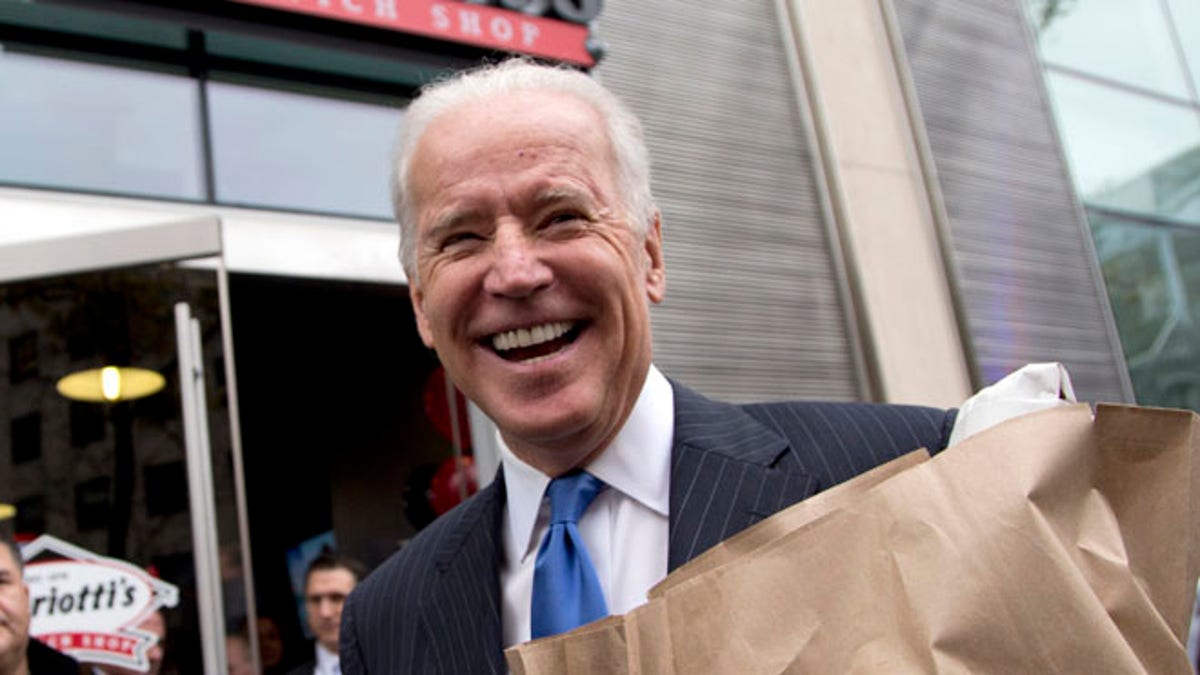
FILE: Nov. 21, 2013: Vice President Biden outside a sandwich shop in Washington, D.C. (AP)
TOKYO – Vice President Joe Biden voiced strong opposition Tuesday to China's new air defense zone above a set of disputed islands, showing a united front with an anxious Japan as tension in the region simmered.
Standing side by side in Tokyo with Japanese Prime Minister Shinzo Abe, Biden said the U.S. is "deeply concerned" about China's attempt to unilaterally change the status quo in the East China Sea.
"This action has raised regional tensions and increased the risk of accidents and miscalculation," he said.
Biden said the U.S. is coordinating closely with allies Japan, South Korea and others, adding that the U.S. has an interest in lowering tensions in the region.
"I will be raising these issues with great specificity when I meet with Chinese leadership the day after tomorrow," Biden said.
Biden's remarks came as Japan is pressing the U.S. to more actively take Japan's side in an escalating dispute over China's new air defense zone above a set of contested islands in the East China Sea.
The U.S. and Japan have refused to recognize China's air defense zone above tiny islands that China and Japan both claim. The U.S. and its allies are concerned China's move is part of a broader strategy to assert increasing authority in the region.
"The prospect for miscalculation and mistake is too high," Biden said of the air defense zone.
Abe, who met with Biden at the prime minister's residence here Tuesday, said he and Biden confirmed that neither country would tolerate the attempt to change the status quo by force. He invoked Japan's decades-long alliance with the U.S. in pledging the two would work closely to deal with the situation.
At the same time, Abe tried to smooth over a minor rift that emerged between the U.S. and Japan as Biden headed to the region over whether commercial airlines should comply with China's demand that they file flight plans before flying through the zone. Japanese leaders were concerned after word came that the U.S. was advising American carriers, in line with existing protocol, to comply with such requests from foreign governments.
"We agreed we will not condone any action that could threaten safety of civilian aircraft," Abe said.




